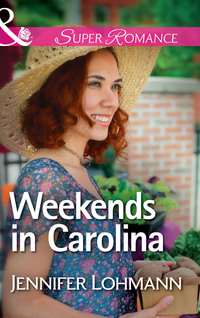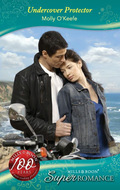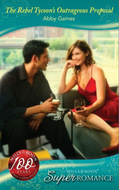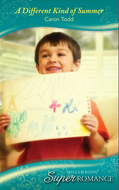Kitap dosya olarak indirilemez ancak uygulamamız üzerinden veya online olarak web sitemizden okunabilir.
Kitabı oku: «Weekends in Carolina»
Wishing the weekend would never end!
Trey Harris wants nothing to do with his late father’s farm. In fact, he can’t get rid of it fast enough so he can enjoy his city life. Then he meets Maxine “Max” Backstrom—the gorgeous woman leasing the land. Between her passion for his family’s farm and her determination to show him its beauty…well, Trey can’t stop thinking about what it would be like to kiss her!
Still, their lives are worlds apart. If he sells, her livelihood vanishes. But his interests aren’t here. And no matter how magical their weekends together are, this can’t lead to anything…can it?
He watched her watch the game...and couldn’t look away
“I don’t think I’ve seen a college basketball game since, well, since college,” Max said, before a forkful of corn pudding disappeared into her mouth.
“Where did you go to college?” Trey asked, suddenly interested in everything about her.
She held up her fork and he waited until she swallowed. “Illinois, so I know a thing or two about college basketball.”
Trey scoffed. “Big Ten basketball is fine, so long as you’re in the Midwest.” He turned on the accent he’d turned off for most of his adult life. “Y’all down South now, ya hear.” When he turned to smile at her, she had an unabashed grin on her face. Her white teeth against her pale lips, her speckled skin, and the wild mass of orange hair were a shining counterpart to the flashes from the oversize television.
He wrenched his face back to watch the game. Right now he controlled her livelihood. Even if he wanted to know just how much of her body was covered in freckles, he was leaving in a week.
Dear Reader,
I grew up in southern Idaho with parents who gardened. And they didn’t just have a small, “square foot” garden; our garden was about an eighth of an acre and included raspberries, strawberries, apples, apricots, pears and plums, along with vegetables. Between tilling in the manure, laying the drip lines, organic pest control, et cetera, this garden was a huge operation for one family. It provided all of our summer produce, along with produce to give away, and to preserve. No one ever had to tell me to “eat my vegetables” because fruits and vegetables made up the bulk of what I ate—although I did have to be told to eat my zucchini.
Now I live on a shaded plot of land and I am a terrible gardener.
Farmers’ markets and community-supported agriculture saved me. While agriculture has always been an important part of North Carolina’s economy, I have been blessed to live in Durham at a time when “eating local” really started to gain hold. One of the benefits of writing Weekends in Carolina is that I had an excuse—obligation—to get to know my farmers better. The amount of care, both for the land and for the vegetable, put into a single cucumber humbles me.
If this book inspires you to go to your local farmer’s market and buy a pound of spring carrots, then I also suggest that you visit the bookstore for a copy of World Vegetarian by Madhur Jaffrey and make her stir-fried carrots with ginger and mustard seeds. You won’t regret either purchase and you’ll have the bonus of a delicious side dish.
Enjoy!
Jennifer Lohmann
Weekends in Carolina
Jennifer Lohmann
ABOUT THE AUTHOR
Jennifer Lohmann is a Rocky Mountain girl at heart, having grown up in southern Idaho and Salt Lake City. When she’s not writing or working as a public librarian, she wrangles two cats and five backyard chickens; the dog is better behaved. She lives in Durham, North Carolina, and has received a weekly box of vegetables from the same farm for eight years.
MILLS & BOON
Before you start reading, why not sign up?
Thank you for downloading this Mills & Boon book. If you want to hear about exclusive discounts, special offers and competitions, sign up to our email newsletter today!
Or simply visit
Mills & Boon emails are completely free to receive and you can unsubscribe at any time via the link in any email we send you.
To Elise from Elysian Fields Farm and all the small farmers selling week after week at farmers’ markets across the country; thank you for growing delicious food for me to cook with and eat.
To all the people who helped me weather a rough year. This space is too small to thank each of you individually, but you know who you are. May life bless you as much as you have blessed me.
Contents
CHAPTER ONE
CHAPTER TWO
CHAPTER THREE
CHAPTER FOUR
CHAPTER FIVE
CHAPTER SIX
CHAPTER SEVEN
CHAPTER EIGHT
CHAPTER NINE
CHAPTER TEN
CHAPTER ELEVEN
CHAPTER TWELVE
CHAPTER THIRTEEN
CHAPTER FOURTEEN
CHAPTER FIFTEEN
CHAPTER SIXTEEN
CHAPTER SEVENTEEN
CHAPTER EIGHTEEN
CHAPTER NINETEEN
CHAPTER TWENTY
CHAPTER TWENTY-ONE
CHAPTER TWENTY-TWO
CHAPTER TWENTY-THREE
CHAPTER TWENTY-FOUR
CHAPTER TWENTY-FIVE
CHAPTER TWENTY-SIX
CHAPTER TWENTY-SEVEN
CHAPTER TWENTY-EIGHT
CHAPTER TWENTY-NINE
CHAPTER THIRTY
CHAPTER THIRTY-ONE
CHAPTER THIRTY-TWO
CHAPTER THIRTY-THREE
CHAPTER THIRTY-FOUR
Extract
CHAPTER ONE
TREY WOULD HAVE bet substantial amounts of money that he would never have found a woman shooting tin cans with a .22 attractive. Or, for that matter, any woman standing behind his father’s house. This woman was evidence that he would have lost both wagers.
He couldn’t see her face, but she had a ferocity to her stance, legs set apart and knees slightly bent, elbows sharp and dangerous, and he could describe the pinch in her facial features without her having to turn around. Her mass of curly, carrot-colored hair was barely contained by the knot she’d tied it in, and the baseball cap it was shoved under was doing nothing to help lash the masses together. She must be keeping it out of her eyes by sheer force of will, as the wind blew wisps of curls everywhere but in front of her face.
Trey was surprised there was enough country left in him to find a woman in work boots attractive. Another bet he would have lost.
Whoever she was, her jeans skimmed over her tight butt before disappearing into her boots, and he was enjoying the way her shoulder blades poked through the white cotton of her T-shirt. And the way the surprisingly bright and unseasonably warm sun of a January day in North Carolina bounced off the freckles on her arms. Only a small amount of bare skin was visible, but what he could see was more freckle than not.
She pulled the trigger and the P in one of the Pepsi cans disappeared before the can toppled over. The woman herself barely flinched. Trey had just taken another breath and she shot the next can. Given the pile of fallen cans and the near-empty box of fresh targets, the woman had been out shooting for a while. He was loath to interrupt her to ask where Max was. Not only was he enjoying the view, but she was an angry woman holding a rifle. Trey knew nothing about Max and his competencies, but Trey’s father had certainly been capable of making a woman angry enough to shoot any human with a Y-chromosome, even from beyond the grave. God knows Trey had spent much of his childhood escaping his house to punch trees while his mother had practiced her bland smile.
Clip spent, the woman put the rifle on the seat of a lawn chair and stalked to the line of dead cans.
“Hey,” Trey called out as he walked to the chair. She didn’t turn around or give any other indication that she’d heard him. His mother’s lessons, always at odds with his father’s example, had been to be polite and respectful to women, but he couldn’t yell “pardon me, ma’am” with enough force to get the woman’s attention, so he reconciled himself to a rude “Hey, you!”
The woman started, knocking over the pile of dead cans she had constructed. When she looked up at him, his spine tingled in response. Even through sunglasses, the force of her stare caught him off guard. As far as he knew, she wasn’t supposed to be on his father’s farm, much less here shooting cans. Or was it his farm now? Or maybe it was Max’s farm. It didn’t matter who owned the property at the moment. This woman wasn’t supposed to be here.
She straightened, then reached up to her ears with both hands and pulled. Two small bits of orange foam bounced off her shirt, just above the rise of her breasts.
Of course she couldn’t hear him. She’d been wearing earplugs. It had been so long since Trey had stood in his backyard and shot at cans that he’d forgotten some of the basic safety precautions.
She marched up to him, her stride as direct as her stare. After they were no longer in shouting distance, she lifted her sunglasses off her face, folded them into the neck of her T-shirt and said, “You must be Trey Harris.”
The woman walked quickly. By the time she had finished speaking, she was directly in front of him. The part of Trey that had been admiring her backside also noticed the peaks of her nipples pressed against her shirt—even if it was a warm, sunny January day in North Carolina, it was still a January day. But Trey wasn’t a complete caveman; he also noticed that she had clear, mint-green eyes.
“You have the advantage over me,” he said, focusing his attention on her arresting eyes. For all that the rest of her was easy to look at, her eyes—and the straightforward way she looked at him—were mesmerizing. She was daring him to look away and he couldn’t. “You know who I am, but I don’t know who you are.”
Or what you’re doing here.
Her straight, pale eyebrows crossed in confusion. “I’m Max Backstrom,” she said without offering her hand.
“You’re Max?” A couple years ago, Trey had asked Kelly if his boyfriend had known he was spending so much time with Max. His brother had choked with laughter—and now Trey knew why.
Her confusion didn’t last. She lifted one eyebrow, this time daring him to argue with her, and he didn’t accept this challenge, either. This woman was his father’s farmer.
* * *
THE ANGER THAT had been warming Max from the inside retreated enough for her to feel the cool breeze on her bare arms. After the one glance at her breasts, Trey had managed to keep his eyes on her face for the rest of the conversation, but she’d noticed that one glance. And his surprise at learning her name. She knew that father and son had barely spoken for years, but she had a hard time believing not one of those conversations had included the basic fact that Hank was leasing his land to a woman. Or at the very least, that Kelly hadn’t told him. She had thought the brothers kept in touch through the occasional email.
The next puff of wind brought a strand of hair across her face and goose bumps to her arms. She debated continuing to stand there in her T-shirt just to see how long he could keep his eyes off her erect nipples, but good sense won out. The ownership of the farm was in flux and she needed Trey’s support. Plus she was cold. She pulled her sweatshirt off the back of the chair and shoved her arms into the sleeves before zipping it up all the way.
Finally buffeted against the chill and Trey’s shock, she said, “Max is short for Maxine.” Which was short for Maxine Patch, but she only used the full ridiculousness of her name when signing contracts, and they weren’t at that stage in their relationship yet. “Let me clean this up and then we can have a cup of tea and talk.”
Having known Trey’s father and seeing the shine on the son’s loafers, Max hadn’t expected him to follow her up the small hill to collect cans. Today was sunny, but the past few days had been nothing but rain. Some of the ground was soil. Some of it was red clay. All of it was mud. Cans clinked against one another as they tossed them into the box. Her supply of targets was going to be much smaller now that Hank Harris was dead.
“Where to?” Trey’s arms were wrapped around the box of cans and he was looking around. Through his eyes, the farm in winter probably didn’t seem like much to look at. The only greens were the loblolly pines at the edges of the fields and the hardiest bits of grasses. Everything else was brown either because it was dirt or because it was dead. Even the winter cover crops were fading.
She bit her lip before the urge to defend the bareness of the land in winter escaped her mouth. This man didn’t care about the land. Hank had said neither of his sons had cared about the land. Of course, Hank had only cared that the land was still in his possession—“got a responsibility,” he used to say, though Max had never been certain who the responsibility had been to. Surely the ancestors who’d first settled this plot of land would have wanted to see it farmed more than they would have wanted to see Hank stand on the dirt with his thumbs tucked into his belt loops.
Max didn’t know where Trey stood on the responsibility line, and she hoped he saw that the land was only useful if it was being used. And she could use it. “Put them in the back of my truck,” she instructed. “They need to go to recycling.”
He nodded then walked off in the direction of her ancient blue pickup truck. If he was concerned about the mud on his fancy shoes, he didn’t show it. Max sighed. Trey wasn’t the only one who’d apparently made judgments based on little information. Neither was he the only one who’d made those judgments poorly. All she had known of Trey was that he rarely talked to his father or brother and wore suits to work. Hank had emphasized the last fact every time he talked about his older son, saying, “I can’t believe I let Noreen raise that boy up to wear suits to work,” with his tone somewhere between disgust and pride. Since Max had occasionally heard Hank brag to his mechanic about Trey, she gave Hank the benefit of the doubt and credited his disgust as a cover for his true feelings.
Max had seen the crisp white collar of Trey’s shirt poking up from the navy blue of his striped sweater and forgotten that he’d spent his childhood on this farm. His full, nearly black hair, cut in a conservative style, thick, black eyebrows and clean-shaven face fit her image of preppy Capitol Hill policy wonk better than son of a Southern good ole boy. But add some stubble to his square jaw and change the intelligent curiosity in Trey’s dark brown eyes to Hank’s amused condescension and the resemblance was clear. Replace his flat stomach with a beer belly, add a ratty #3 Earnhardt cap and twenty-five years, plus a stint in Vietnam, and Trey would be the spitting image of his father.
Her uncharitable thoughts were unfair to Hank. The man had been a jerk, but he’d also leased her land to farm for cheap and helped fix up one of the tobacco barns for housing. Hank may not have understood the changing face of farming in central North Carolina, but he wasn’t going to stand in its way. Besides, the mess she was in now was her fault, as much as Hank’s. She should have pressed him harder on the specifics of the ownership of the farm once he passed away, but she hadn’t wanted to risk pissing him off and losing the farm while he was alive.
No, that wasn’t fair to Hank, either. She’d been afraid to learn he had changed his mind about writing the lease into the will and that she would have to make another plan. Now she was stuck with her three-year plan, and no idea if she would need another by December. She wished she had her mother’s ability to leap into the unknown and reinvent herself every couple years, but—like her father—Max was a farmer, plodding along through life.
She grabbed the rifle and the chair and followed Trey to her truck. She didn’t know how he’d managed it, but there was not a single speck of red clay on his sweater from carrying the box.
“Where are you staying?” she asked.
He looked uncertain. “I’d planned to stay at the house, but...”
“But that was when you thought I was a man.”
“You’re a farmer named Max. Can you blame me?”
“No.” Trey hadn’t been the first person to be surprised at her lack of penis and he wouldn’t be the last. Despite many small organic farms being run by women, people still expected a burly man with a piece of straw sticking out of his mouth and a John Deere hat when they met a farmer. “I’m just surprised the subject never came up.”
A noise somewhere between a laugh and a scoff escaped Trey’s lips. “I’m sure my father meant to be alive and present when I finally met you. Like a big practical joke.”
She laughed at the irritated resignation on his face, especially because she could sympathize. “Hank always did find it funny that he had a ‘lady farmer’ leasing his land. You can still stay at the house. I live in one of the barns. Though Kelly didn’t think you’d be coming today, so the heat’s been turned off and I doubt there’s much edible in the kitchen.”
“Is the offer of tea still on the table?”
“Sure.” She looked at the watch face strapped on to her belt loop. “I’ll even throw in lunch.”
“Great. Let me put my stuff in the house and turn the heat on. Then I’ll be over. By the time we’ve finished eating, perhaps the heat will have pushed the damp out of the walls.”
“Deal,” she said, with more cheer than she felt. Then she watched him for a moment as he walked to his fancy car for his luggage. Whether it was the long line of his legs or his power over her future that interested her so much, she wasn’t sure. Both made her nervous.
CHAPTER TWO
TREY WAS STANDING on Max’s front porch, about to knock, when his phone buzzed. While in the house he’d texted Kelly, asking why his brother hadn’t told him their dad’s farmer was a woman. Kelly’s response was simple.
Hah! I thought Dad had finally told you. Be over after work.
He shoved his phone in his pocket, along with the feeling that his entire family was playing a joke on him. Only his father, the originator of the joke, was dead and Kelly hadn’t ever been interested in traditional gender roles, so this wasn’t a joke he would have played on purpose. Which made this nothing more than a painful reminder of how little connection he’d had to this place after his mother died. In the hereafter, his father was likely cackling that Trey’s discomfort at being surprised was just punishment for only calling his dad on occasional birthdays and Christmas.
A dog barked when he knocked on the door, and from somewhere inside Max called out, “Sit.” When she opened the door a mottled black, white and tan dog was at her feet, looking at Trey with a mix of curiosity and annoyance. It was much the same way Trey had felt looking at Max, when he had wrongfully thought she didn’t belong on his father’s property shooting cans, before he knew she was Max.
“This is Ashes. Don’t mind him. Cattle dogs are a protective breed.” As if to prove her point, the dog growled. Trey thought about growling back—this is my land—but pissing contests only rewarded the fool who drank too much. Better to be smart than a bloated idiot. Plus, for all he cared, the dog could claim the land by peeing on every blade of grass; Trey sure didn’t want ownership of the useless hunk of clay.
With this inauspicious start, Trey stepped through the doorway into Max’s barn. “I figured the barn would have fallen down by now.”
The last time he’d been here, for his mother’s funeral, the barn door had been missing and some of the beams had been rotted through. Now it was downright cozy with stairs leading up to a loft, a large woven rug on the floor and a woodstove along one wall. Trey blinked and took a second look.
The walls and floor were bare wood and the kitchen at the back had a small fridge and an even smaller stove, giving the place the look of someone’s hunting cabin instead of a renovated barn where people lived. So maybe not cozy, but livable, which was still a damn sight better than it had been five years ago.
“The first winter I lived in the farmhouse with your father while we renovated the barn to make it livable.” She blinked and opened her pink, cracking lips like she was going to say something else. Her lips opened and shut one more time before she’d made up her mind about continuing. “I’d planned to move into the farmhouse and use the barn for housing when I finally bought the place but...”
He realized that whatever leasing agreements she had with his father carried over with the property, but that didn’t mean Trey couldn’t toss them all out the window and eat the breach of contract cost just to wash his hands clean of the place once and for all. That was if he even owned the farm. They could both hope that his father had left the property to Max in his will. Because truthfully, Trey didn’t care if his father had left it to the Earnhardt Foundation, so long as he didn’t have to come down here again.
“Anyway, no matter what you decide to do, it seemed crass to move into the house right now.”
“Better to wait until after the funeral?”
“That wasn’t...” she said, but he waved off her apology.
“I know that wasn’t what you meant. I don’t want the farm, though I probably now own it. I’m sure whatever agreement you had with my father will be fine with me. We’ll sort this out. You can move into the farmhouse and I can go back to D.C. Hell, you could move in now, for all I care.”
Trey supposed sadness was the proper emotion to feel after his father’s death, but the only emotions coursing through him were relief that the man had only killed himself and nobody else in the car accident, and irritation that he hadn’t sold the land before dying. The man had been a drunk and a bastard—why did he also have to be irresponsible?
The kettle on the stove whistled and the dog cocked his head to the sound, but didn’t bark. Max pointed at a dog bed in front of the woodstove before heading to the kitchen, and the dog obediently went to lie down.
“Sorry about the mess on the table,” she called over her shoulder. “If you could dump the papers and laptop in the box by the table, we’ll have space for our food.”
As Trey shoveled everything into the box, the receipts and invoices for seeds, straw and ladybugs didn’t surprise him, but the resumes did. What did he know about farming anyway? He’d worked on his uncle’s tobacco farm only because he had to, but when college brochure time had come around, he’d tossed into the trash any pamphlet with Ag or Tech or State on the front. He’d wanted to toss all the applications for North Carolina colleges in the trash, too, but money had been short. In the end, a degree from Carolina and the connections of a fraternity brother had gotten him to D.C. and a congressman’s office and that was enough. He realized he was staring at an invoice for strawberry plants—probably had been doing so for a while. He shook his head, tossed the invoice into the box and then placed the laptop in last, weighing down the pile of papers.
The table cleared, he went to the kitchen to help Max with the plates.
“I hope egg salad is okay,” she said, as she handed him a plate and a mug of tea.
“Egg salad is great.” The plate was brimming with food. The egg salad and some lettuce was on wheat bread, cut diagonally, he noticed with a smile. Also on the plate were apple slices, a pickle and a pile of potato chips. Despite the oddness of drinking hot tea with his lunch, Trey was grateful for it. Max’s cabin wasn’t cold, but it was cool. And it was one of those odd North Carolina days when the inside was colder than the outside.
Their plates each made different clinks when they touched her small table and Trey noticed they were mismatched. So were the mugs. Max got back up to get them some water and returned with mason jars, rather than regular water glasses. He took another look around the barn. There was not a doodad or tchotchke in sight. Judging by her residence, Max had no patience for pretense and no interest in owning things that didn’t have a use. Everything was well cared for, but nothing was fussy. Even the dog, who had been fixin’ to get up from his bed before a look from Max settled him back down, probably had a job.
“Thank you for the reassurance about the house,” Max said before taking a bite of her sandwich. “Clearly, I had expected to live in the barn this summer, but having it to offer for housing will make finding seasonal help easier.”
“I have no interest in ever living back on the farm and I’m sure Kelly doesn’t, either. And the house does us no good standing empty. Kelly and I will take a week to pack up and store anything personal, then you can move in.”
He took a bite of his sandwich. The egg salad was rich with mayonnaise and the yolks were the bright orange of the eggs he remembered eating as a child, when his mother had raised hens. “Do you have chickens?” he asked, a little embarrassed that he didn’t know what Max grew, other than vegetables.
“They were Hank’s. After we finished renovating the barn, he had some leftover wood. There’s a little chicken coop on the other side of the house, built to look like a tobacco barn.” Her smile must be at the thought of the chickens; it couldn’t be at the memory of his father. “It’s cute.”
Trey tried to imagine his father designing a cute chicken coop and got a headache. He also couldn’t imagine his father wanting chickens. Trey, Kelly and his mother had built the original chicken coop after his father’s response to his mother wanting hens had been, “You want ’em, you gotta work for ’em.” Kelly and Trey had gone with their mother to pick up the chicks from a nearby farm, and though Trey had pretended to be too old and too manly at thirteen for anything cute, he still remembered having to repress a giggle at the sight of the cheeping biddies. His father, however, had never once referred to the chickens without the adjectives “smelly” or “dirty.” He’d also never once turned down fried eggs or a slice from one of his mother’s delicious sour-cream pound cakes.
“I’m sorry about your father,” Max said. Her tone held the same sharp honesty of her stare and Trey wondered if she meant it or was the best liar on the planet. He decided to give her credit for honesty.
“I’m only sorry he didn’t sell you the land before he killed himself. Seems like that’s the only thing you should be sorry about, too.”
It was eerie, watching those short, pale lashes lower over her light eyes. Trey almost felt like he’d said something he shouldn’t have. Almost.
They finished the rest of their meal in silence.
* * *
MAX APPRECIATED BOTH Trey’s help carrying the dishes to the sink and his quick exit. She didn’t know how to respond to the anger simmering under the surface of his skin. Hank hadn’t been a paragon of anything, but he at least deserved for his children to be sad at his death.
She scrubbed the plates and stacked them in the small dish drainer. The winter season was slow on the farm, but she had to finish plotting out her fields before the spring vegetables went into the ground. And she must make sure she had enough wax boxes in stock for when the Community Supported Agriculture, or CSA, began. And arrange for the intern candidates to visit. She’d been about to send those email invitations when Hank had died, then she’d wanted to wait until she’d met Trey.
Of course, she thought as she folded the kitchen towel and hung it off the oven, she could still lose the farm for the summer. She didn’t think Trey’s promises could to be trusted. She would have to go on with her work as though everything was normal and be prepared to stand tall when everything came crashing down about her feet.
But starting the broccoli in the greenhouse would have to wait until tomorrow, since she’d wasted the morning in useless, irritated shooting and would need to spend some of the precious daylight picking up shell casings. Her irritation with herself for wasted hours would last until she turned the week in her calendar and didn’t have to look at “shot Pepsi cans” as her record for daily farm duties. Maybe if she added “made lunch for new landlord” to it, the day wouldn’t look so wasted on paper.
When she’d asked Hank what happened to the will and he’d said, “I’ve taken care of it, sugar,” she should’ve pressed him for more details. Her morning spent in target practice had been as much a reaction to her own stupidity as to not knowing what Hank had meant by taken care of it.
She whistled and Ashes eased his old bones out of his bed, stretched, then finally wagged his tail. The old dog wasn’t ready to retire from farmwork yet, but this might be his last season. The geese were starting to get the best of the old dog. She wished he could live out the rest of his days in a farmhouse with central heat rather than the often too-cold barn. She opened the door and together they set out for their respective jobs in the fields.
* * *
“SO YOU MET MAX, huh?” Kelly had let himself into the house without bothering to knock. Which was fair, Trey supposed, since their father should have left the house and all the land to both of them, though Trey would bet the farm that the old man hadn’t. The old man’s prejudices coming in strong, even in the end.
Kelly set bags of Bullock’s barbecue on the counter and the smell of vinegar, smoke and pork filled the kitchen. Trey was happy to see the food, even though he had no idea what they were going to do with all the leftover barbecue, especially with whatever food would be brought by the house tomorrow. “She’s pretty neat.”
Ücretsiz ön izlemeyi tamamladınız.









